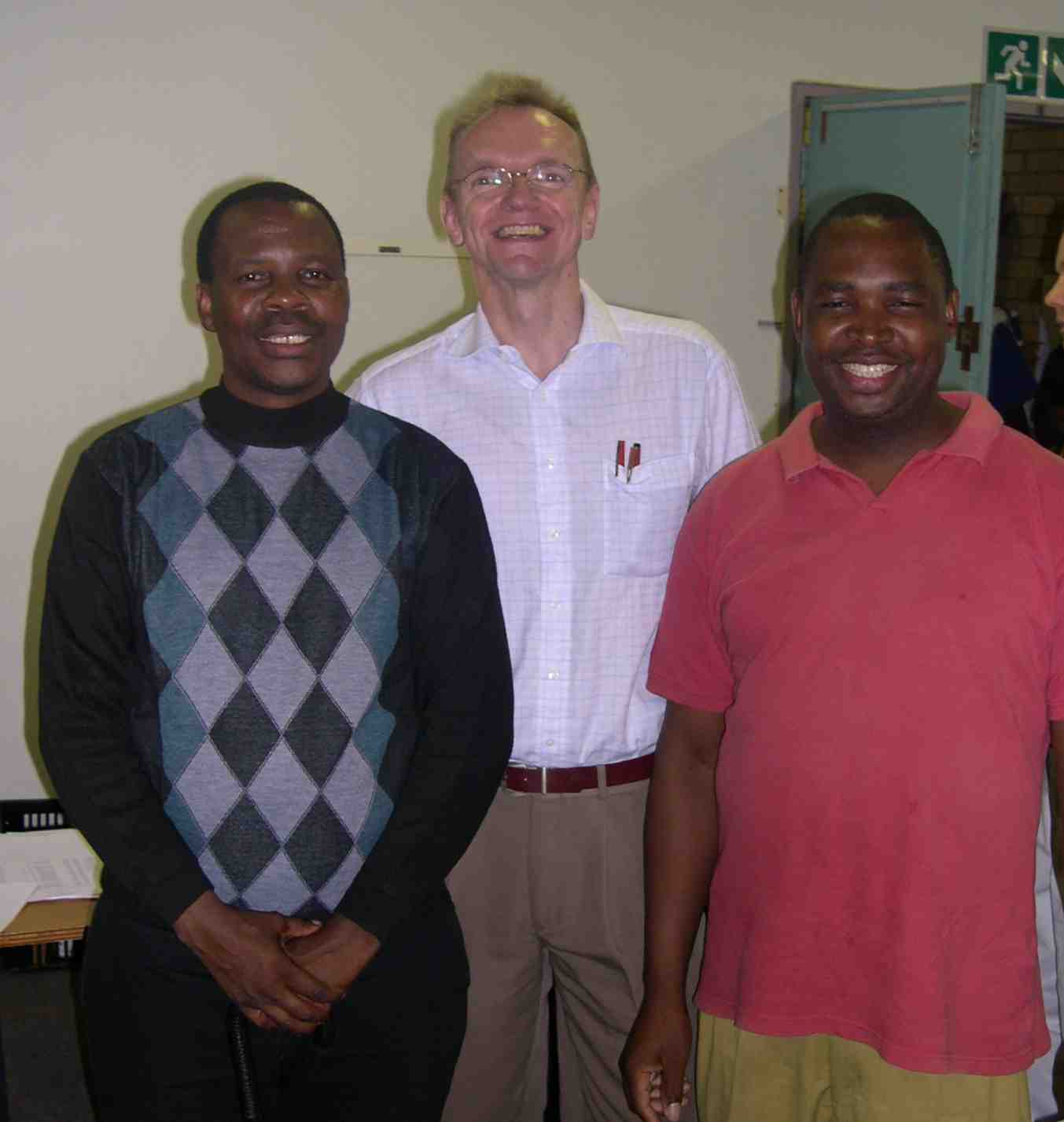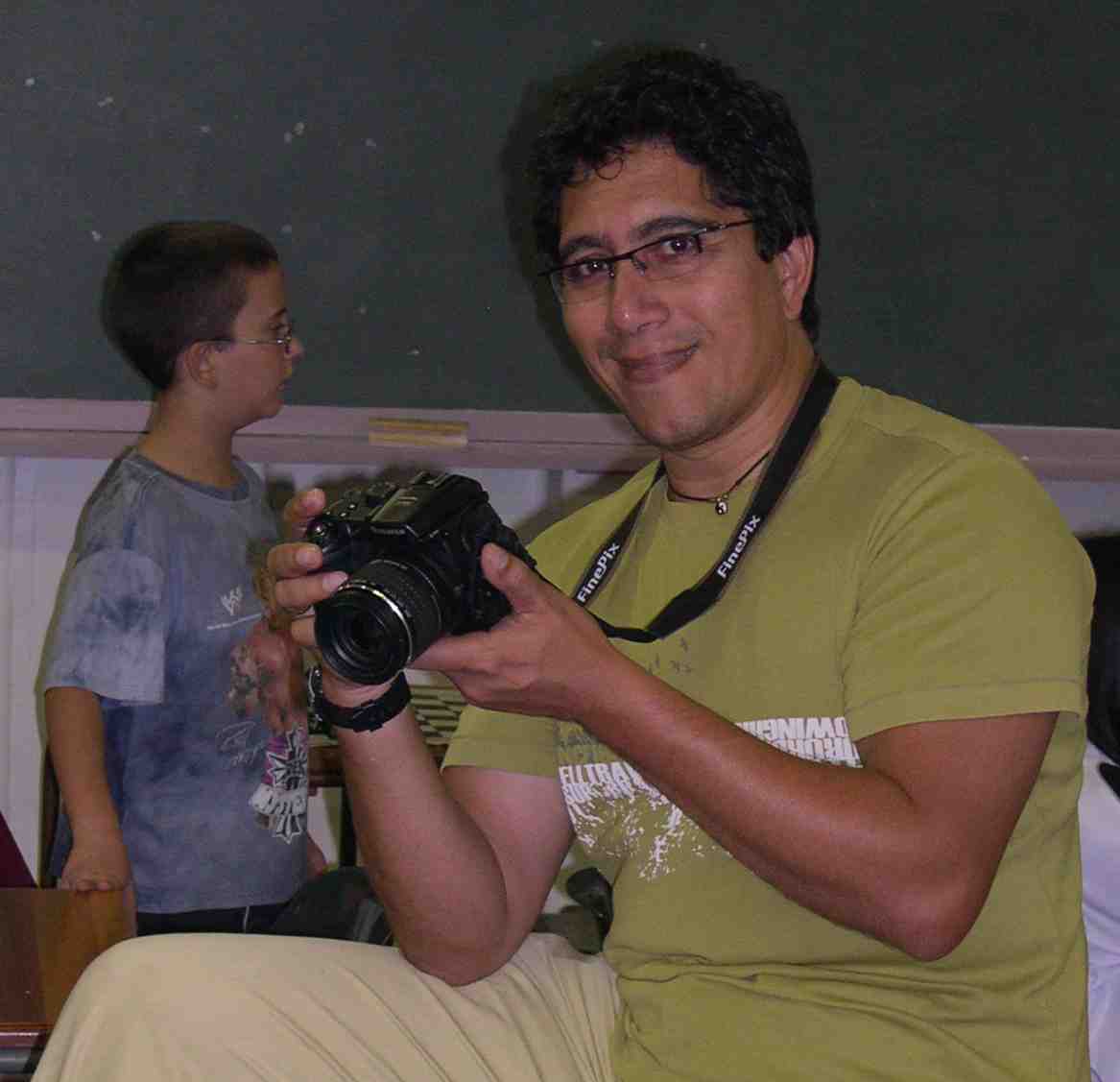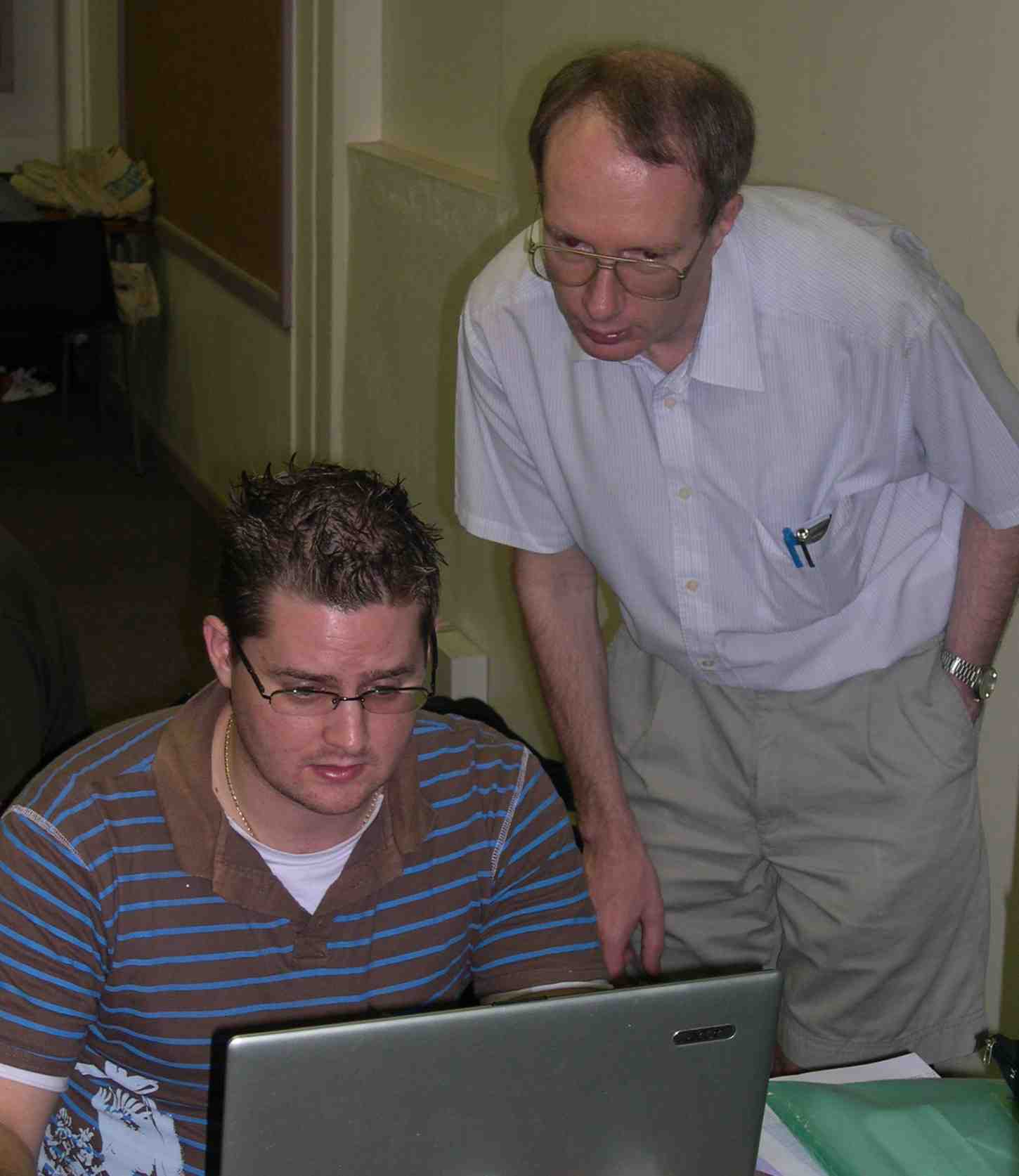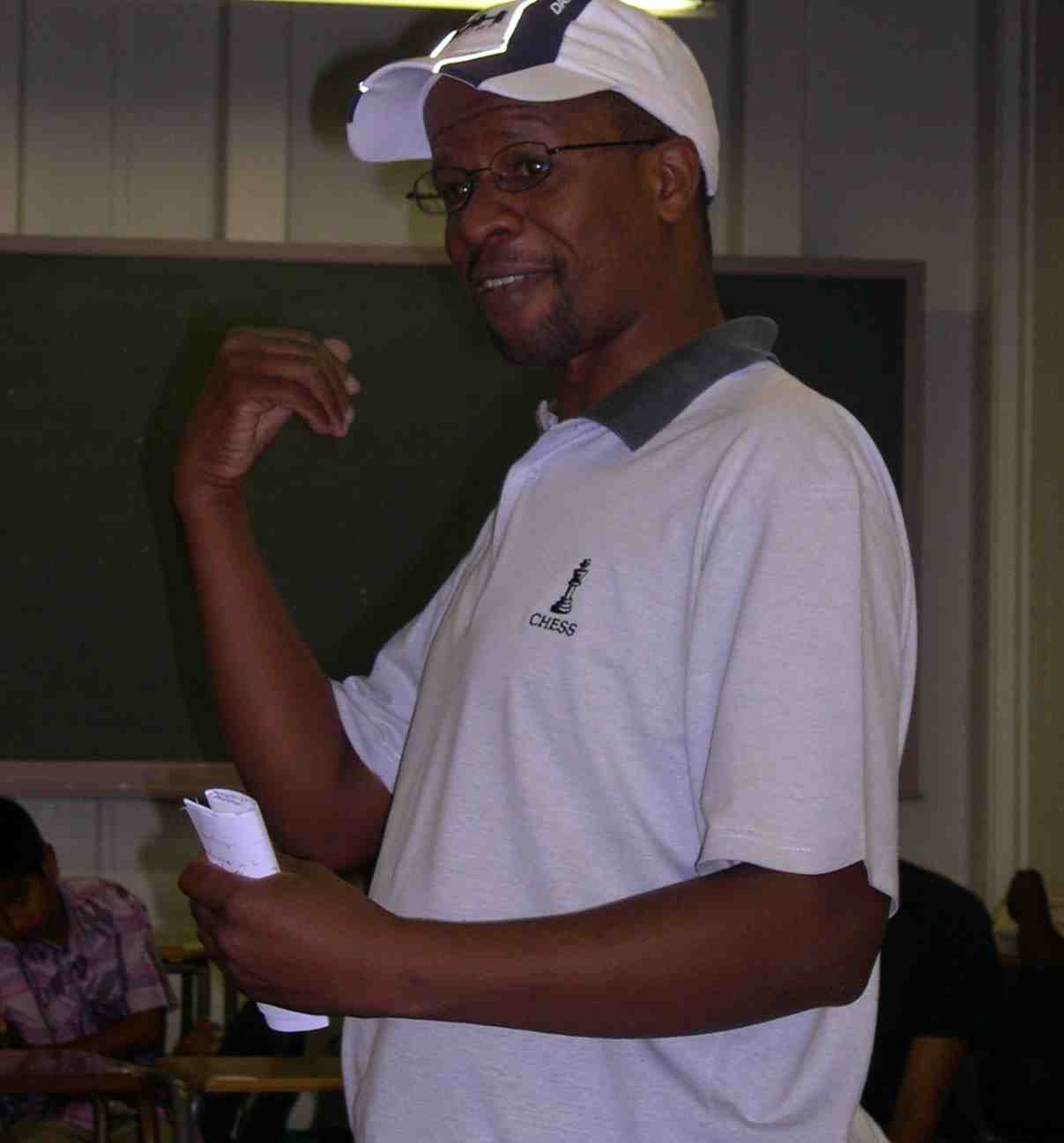Kwa-Zulu Natal Open 2007
CHECKMATE IDLE BRAINS
Report by Peter Dankelmann, with photos by Shaun Savy

Peter Dankelmann with tournament winner Cyril Danisa
(on the right) and Bheki Ngcongo (on the left)
This weekend saw the University of KwaZulu-Natal and the Durban Chess
Club join forces in an unusual alliance to determine the strongest
chess player in the province and to enhance disadvantaged students'
learning skills. A field of 64 of the strongest players in KZN as
well as selected students from the university's UNITE programme
competed for the title of chess champion of KwaZulu-Natal.
On offer was also prize money of over R10.000, sponsored by the
UNITE Programme (University of KwaZulu-Natal Intensive Tuition of
Engineers) and the Durban Chess Club. The UNITE Programme supports
disadvantaged students who want to study engineering. In a most
remarkable initiative, the programme aims to take advantage of
the benefits of the game.
The unlikely move of awakening their students' interest in a game
is the brainchild of Rudi Kimmie, Deputy Director of the programme,
which gives support to UKZN engineering students from a disadvantaged
background which have demonstrated great potential. Kimmie, no stranger
to unconventional ideas to expose his students to intellectual stimulus,
was emphatic that chess is the right game to enhance the strategic
thinking and problem solving abilities of future engineers as well
as most professions. Chess players learn thinking ahead, careful
analysis of situations, patience, persistence, and mental discipline.
'Chess players tend to be achievers' he adds.

Rudi Kimmie preparing to take some photos
The potential of chess as a medium to enhance the performance of
learners is increasingly accepted among decision makers. Scotland's
former Minister of Education, Peter Peacock, stated that 'chess is
a wonderful game, ...research has shown that pupils who play chess
perform well at school.' And indeed, researchers from the University
of Aberdeen came to a similar conclusion when they investigated the
benefits of chess programmes at Aberdeen (mainly primary) schools.
Most significantly, they found that chess made a difference to the
social adjustment, and it improved comprehension and arithmetic skills.
A chess programme in New York showed similarly positive benefits.
Peter Dankelmann, chairman of the Durban Chess Club and Professor
in the School of Mathematical Sciences at UKZN is convinced that
there is a strong link between chess and mathematical abilities.
'In our UKZN School of Mathematical Sciences we have three former
KZN chess champions and, until recently, a former SA under 18 chess
champion as well. This is certainly no coincidence. I also see that
most junior members of the chess club perform far above average in
mathematics and science at school and at university.'

An anxious moment as Ashley Lewis and Keith Rust
check the pairings on the computer
That chess is not only beneficial but also very exciting was evident
this weekend at the UKZN Howard College Campus, where the chess
tournament was held. Cyril Danisa and defending champion Keith Rust
were among a small group of players that took the lead from the
beginning. In the penultimate round, Danisa dashed former champion
Peter Dankelmann's hopes by declining to take a rook offered to him
and going straight for his opponents king. With Danisa and Rust both
having a final score of 7 out of 8, the Buchholz tie break system was
applied to determine the winner. Cyril Danisa won the tournament and
the title of KZN chess champion. Among the younger players, the fairer
sex refuted the prejudice that female players lack prowess in chess
by claiming 3 of the 4 prizes in the different age categories. The
players of the UNITE Programme, after receiving special chess coaching
by former Durban Chess Club Captain of Play Shaun Savy, did very well.
The best player Lazarus Mashedi scored a most respectable 2½ out of 8
in a field in which the average hobby player would struggle to score
even one point.

Lazarus Mashedi at the chessboard
The tournament is traditionally organised by the Durban Chess Club,
at the ripe old age of 113 one of the oldest chess clubs in the country,
and for the past decade the University Chess Club was involved as
co-organiser. Since 2002 the tournament has taken place on the Howard
College Campus, naturally a good place for intellectual activity. So
perhaps Kimmie's initiative should not come as such a big surprise.
The UNITE Programme's innovative approach looks indeed like a good move.

Tournament director "JR" Mthembu
Finally, here is a copy of the results.
Home Page |
Natal Champions |
Durban Champions





